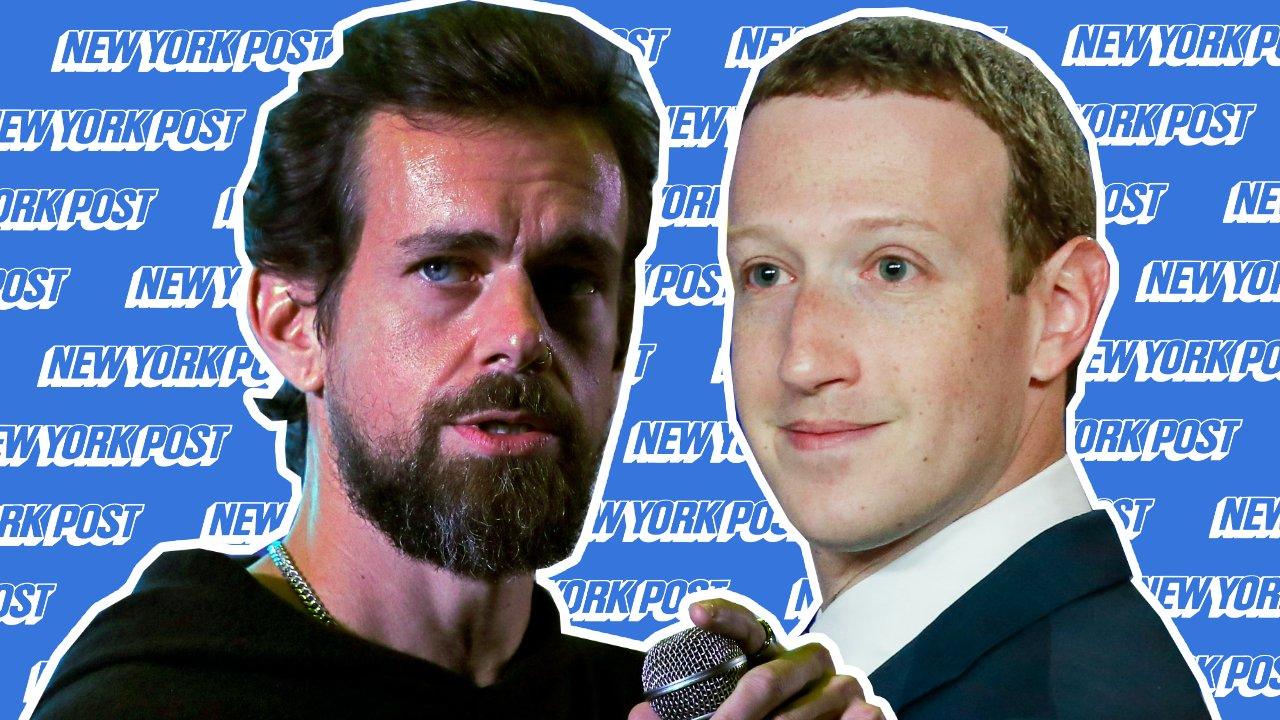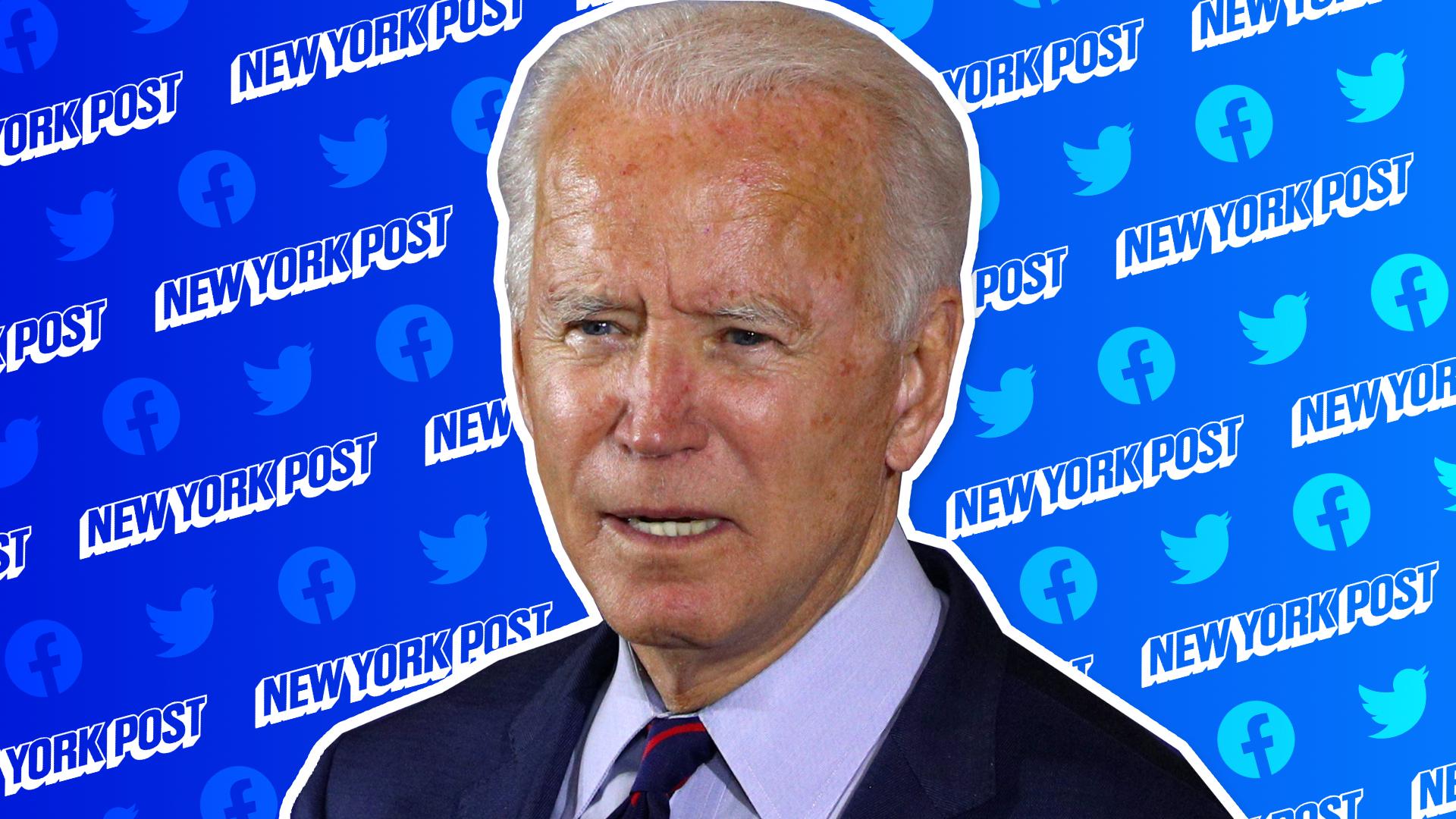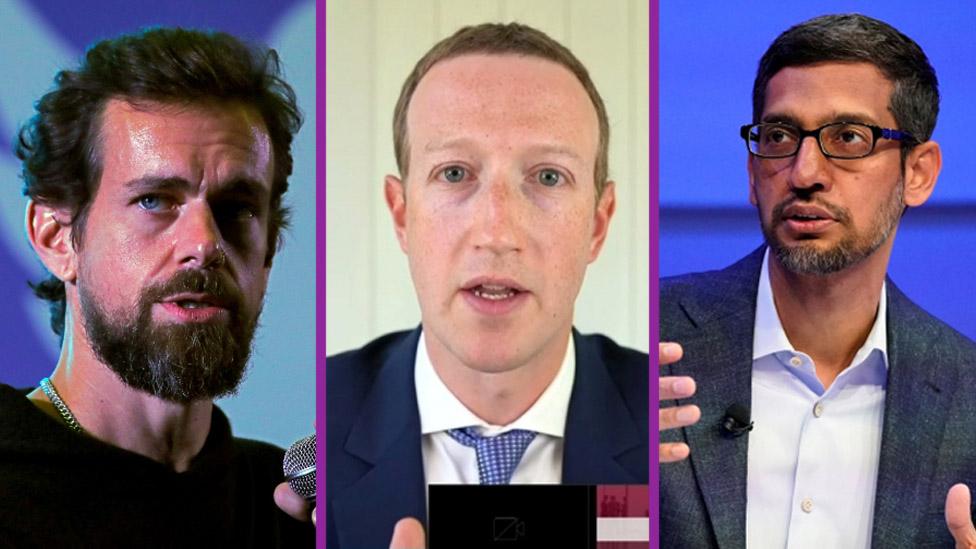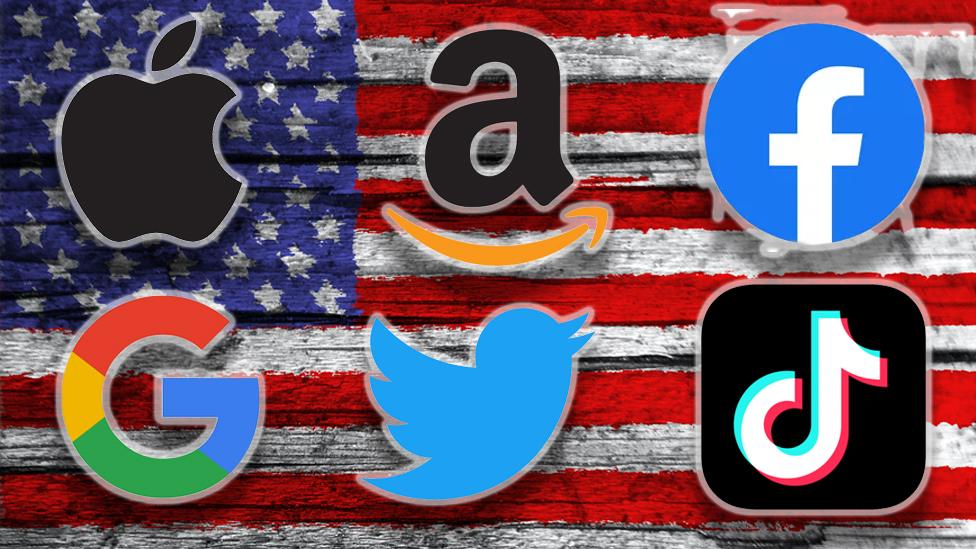Facebook and Twitter chiefs ordered to testify over Biden article
- Published

Facebook's Mark Zuckerberg and Twitter's Jack Dorsey will be ordered to testify over alleged censorship of a controversial New York Post article.
The article revealed emails and photographs that the New York Post claimed were copied from the laptop of Joe Biden's son, Hunter Biden.
Twitter said the story had violated its "hacked materials" policy, but later changed its stance.
Facebook had limited its spread in the news feed while it was fact-checked.
The move prompted accusations of censorship and pro-Biden bias from Republican lawmakers.
Now, 12 Republicans on the Senate Judiciary Committee have voted to compel the two chief executives to testify about their handling of the matter.
Ten democrats sat out the session in protest over an earlier vote on Amy Coney Barrett's Supreme Court nomination.
Mr Dorsey and Mr Zuckerberg are already due to appear before the Senate Commerce Committee next week, alongside Google chief executive Sundar Pichai, to give evidence over claims of anti-conservative bias.
Republican Senator Ted Cruz, who sits on the Senate Judiciary Committee, tweeted that "big tech CEOs are drunk on power and must be held accountable".
Allow X content?
This article contains content provided by X. We ask for your permission before anything is loaded, as they may be using cookies and other technologies. You may want to read X’s cookie policy, external and privacy policy, external before accepting. To view this content choose ‘accept and continue’.
"We will get answers for the American people," he wrote.
No date for a hearing has been set.
Controversial limits
The New York Post's article focused on an email from a representative of a Ukrainian energy company, sent in April 2015, apparently thanking Hunter Biden for an invite to meet Joe Biden in Washington DC.
Joe Biden was vice-president at the time, and his son was on the board of directors for the energy firm.
There is no evidence that such a meeting ever took place, and previous investigations have never found evidence of wrongdoing by the former vice-president, despite claims form his political opponents.
The New York Post article also contained screenshots that showed private email addresses.
Twitter was criticised for blocking people from sharing the article. It later said that it had done so because the article violated its policies on publishing private information and "hacked materials".
Mr Dorsey later acknowledged it had not properly communicated its decision. It later changed its "hacked materials" policy.
Facebook limited the spread of the article in its news feed, while the piece was fact-checked by third-party organisations.
It is unusual for Facebook and Twitter to limit the spread of an article from an established, mainstream news outlet in this way.
Political anger
The restrictions, coming in the run-up to the US presidential election on 3 November, fuelled anger from Mr Biden's political rivals over the alleged censorship of Republicans.
President Trump has proposed removing a legal protection from social networks, treating them as publishers if they fact-check or restrict material.
Mr Biden has also suggested removing those protections - but for different reasons. He has criticised the spread of misinformation online with little consequences for the companies facilitating it.
Democrats voted with their Republican colleagues earlier this month, ordering the bosses of Twitter, Facebook, and Google to face questions.
Despite the Democrats' absence from the vote this time, Republican committee chairman Lindsey Graham said he believed there was "a lot of interest on the other side" in getting "the social media folks here to answer questions".
- Published15 October 2020

- Published1 October 2020

- Published7 October 2020
